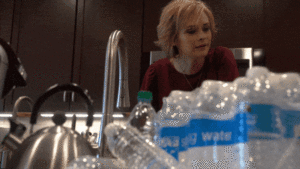Despite numerous government schemes and seemingly constant press coverage, when it comes to energy efficiency, businesses still contribute a huge proportion of our carbon emissions. So while you might have all the latest energy efficient appliances and micro generation technologies at home, leaving your computer on standby all night in the office is helping undo your good work. Hence below is a list of our favorite ways to green your office and save some money at the same time.
1. Join a green credit scheme: as a way to offset your emissions on a larger scale many companies join a green credits scheme in which they purchase a certain number of credits which each individually represent a certain volume of their emissions, the money contributing to developing an alternative renewable energy source. For example, in a number of carbon credit schemes, one credit allows for the emission of one metric tonne of carbon dioxide, hence you are able to offset all your harmful carbon emissions, and all for the good cause of developing sustainable energy production elsewhere. The system was finalised in the controversial Kyoto Protocol, meaning there are now 170 countries worldwide involved.
2. Use recycled paper: with the average worker in the USA using over 12,000 sheets of paper each year, switching to recycled can make a real difference. The urban myth that it is more expensive is exactly that, a myth; recent figures [PDF] show the prices of recycled paper have plummeted. The stats are convincing: buying one tonne of recycled paper saves 20 trees and 700 gallons of water, as well as saving enough energy to power the average household for 6 months. Enough said.
3. Buy Fairtrade products: aside from the obvious ethical issues, Fairtrade products also go a along way to helping the environment. A minimum fee from each product sold goes towards sustainable production in the country from which the product came, and another fraction of the money goes towards developing the communities in which the producers live. Many of the farms guarantee the use of only natural fertiliser and as many of the materials used as possible are recycled. So whether it's your coffee, tea or fruit, the more Faitrade you buy the greener (and arguably healthier) you're office will be.
4. Use CFLs: CFLs, or compact fluorescent lamps, offer a much more environmentally friendly way of lighting your office, as they use nearly one fifth of the energy as their incandescent counterparts. By using alternative ultraviolet technology to emit a white light, they easily outlast their competitors and save 2000 times their own weight in greenhouse gases. Although they are more expensive to buy, their longevity means they have to be changed much less often.
5. Compost: instead of throwing your waste away, get your office a compost bin. If you can't make use of the compost in your building then donate it all to local gardening projects. Composting waste where possible minimizes what you send away to harmful landfill sights and makes a tangible difference to the environment. With an ever-growing list of things that will compost (from apples and bananas to hair trimmings and leather wallets), it is definitely a worthwhile venture. If you are charged for waste collection then this will actually save you money too!
5. Turn off lights: if you're intent on keeping your incandescent bulbs, then at least switch them off when you leave the room. Of the average bulb's energy consumption, only 10 - 15% actually goes towards producing light, the rest is wasted on unnecessary heat and other useless by-products. So to minimize how much energy you waste (and the number of times you have to buy new bulbs), simply switch the lights off whenever possible.
6. Paper alternatives: Paper accounts for around 40% of all municipal solid waste in the USA and sometimes printing or photocopying your documents simply isn't economical, hence it pays to consider digital alternatives in the form of Electronic Document Management. Scanning your documents as opposed to photocopying saves paper as well as allowing many more ways of managing your files by having them saved digitally. And of course where possible send email as opposed to letters - it is you who will benefit financially.
7. Buy second hand: As a general rule, reusing old items is paramount to prevent unnecessary resource use, and this is particularly true in the case of office furniture. Second hand items are cheaper, save energy and resources and are generally a lot sturdier, meaning they won't need replacing again in a year's time. This policy can also work with your office floor, with refurbishing original floorboards often more economical and greener than laying down carpet or tiles!
8. Remanufactured cartridges: Instead of buying completely new cartridges very time your printer ink runs low, send your empty cartridges back and replace them with remanufactured ones. These are used ink cartridges professionally cleaned, refurbished and refilled with new ink, at a fraction of the price of their brand new alternative. As well as saving copious amounts of resources, they can save your business up to 75% on price, so it makes financial sense as well.
9. Energy rating: simply turning all your appliances off overnight can save up to 30% on energy, but to take it a little further you should buy energy rated computers screens, which tell you when you purchase how efficient they are. For example, a popular way of rating involves energy grading, an A being the most efficient, saving you money as they require minimal amounts of energy to run. Similar ratings can be found on your kitchen appliances like your fridge or dishwasher, meaning your office can run much more energy efficiently just by carefully selecting which appliances you buy.
10. Daylight strategy: it may sound basic, but fitting larger windows to increase the amount of light in your office makes business sense. With turning off lights when out of the office able to save up to 19% on energy costs alone, taking them out of the equation completely is a definite money saver. So paint the walls a light color, and let natural light reflect all round your office, possibly saving you thousands on heating and electricity bills.
11. Encourage your office to use public transport: if taking the train yourself doesn't feel like enough, then get the rest of your office doing it. For example, a bus carries 40 more times people than a car, and with each kilometre a car travels emitting approximately 160g of carbon dioxide, the reduction of harmful effects on the environment would be enormous. Add this to the eliminated petrol costs, road tax and maintenance and it might even make you a little better off, if not definitely greener.
12. Reusable kitchen utensils: estimates say that around three billion plastic cups are dispensed by vending machines in the UK each year alone, and without taking into account all the disposable plates and forks thrown away every day, a lot of resources are wasted. Stock up your kitchen with reusable cutlery, mugs, glasses and tableware. Not only will your morning coffee taste better, you'll have more loose change in your pocket and more importantly your office will be doing its bit for the environment.
13. Recycle your computer: instead of simply throwing out old office computers, there are a number of companies who will actually take them off your hands and recycle them for you. Many have a no landfill policy, and often the working parts are refurbished and sold on at a bargain price, reducing the waste of resources on brand new parts. So to save traveling back and forth from the dump with last year's computers, simply get in touch with a recycling company and let them do all the work for you.
14. Don't overfill your kettle: if everybody filled their kettle with just enough water to cover only how much they needed, we would save enough electricity to power all the street lights in the UK. So when it's your turn to do the morning coffee round, go easy on the water! As well as reducing water waste, in the long run you'll save your office a bundle on utility bills.
15. Stick with your pen: 14 million pens are sold worldwide each day, and considering a landfill site full of plastic pens will still be there in 50,000 years, it is perhaps worth considering using them until they are completely empty as opposed to throwing them away at will. While they may be cheap originally, buying less will contribute to saving your office money.
16. Switch off: if you leave your computer on all day for a year it will (indirectly) emit 1,500lbs of carbon dioxide annually, an enormous effect on the environment. In fact, it would take between 100 and 500 trees to bank the same amount of CO2. Put this on an office wide scale and you can quickly see the damage caused by leaving your computer on. Without even considering the cut in your energy bills, turning off should be compulsory for everyone in the office.
17. Print & photocopy on both sides: we are wasteful by nature and as creatures of habit we will continue that way until we force ourselves to change. There is enough paper thrown away in the UK each year to fill 103,448 double-decker buses according to the We Are What We Do organization. If you must use your photocopier then make sure you use both sides of each sheet!
18. Keep warm: install double glazing and wall insulation, it's a great way to reduce central heating use and save water and help store heat through solar gain. Although the investment may be more expensive to begin with, it should keep your office warmer and keep your heating bill down. Similarly in summer, keep the windows open as opposed to turning on the air conditioning, and you should see a large cut in your energy use.
19. Green energy: if you want to go straight to the source of the problem, then switch to renewable energy sources such as solar, wind or hydro power. This of course may not be convenient for some businesses, but if it is for your office then it is highly recommended. As more people who get involved, the more clear and distilled the green message gets.
Our guest blogger James Adams writes at Office Kitten, a UK based supplier of discount stationery for businesses in the UK.










That’s a great list. I’ll be using this in the future.
That’s a great list. I’ll be using this in the future.